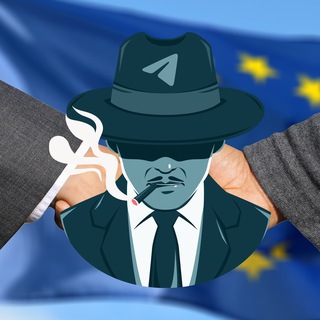Wir müssen nicht Teil der Europäischen Union sein, um Handelsvorteile zu erhalten! 🙅♂️Migrationsmissbrauch, bessere Gesetze
Channel

6
subscribers
215
photos
12
videos
56
links
To first message
More
Involvement in the European Union is still limited. Figure 2.1 shows this with recent answers to the question of how connected people feel to a number of geographical and administrative levels. The greatest connection is with the Netherlands (85% very or fairly connected), the lowest with the eu (37%)❗️; the subnational units are within and between (region 65%, municipality 62% and district/village 60%).
De betrokkenheid bij de Europese Unie is nog altijd beperkt. Figuur 2.1 laat dat zien met recente antwoorden op de vraag hoe verbonden men zich voelt met een aantal geogra - sche en bestuurlijke niveaus. Het grootst is de verbondenheid met Nederland (85% zeer of tamelijk verbonden), het kleinst met de eu (37%); de subnationale eenheden zi en daar- tussen (streek 65%, gemeente 62% en wijk/dorp 60%).
We say NO our 🇳🇱 to 🇪🇺, like our🇨🇭, 🇳🇴 and 🇮🇸 ... meanwhile ... Even our 🇸🇪 🇫🇮 could start saying 🙅♂️!
Dat neemt niet weg dat Nederlanders zich relatief sterk met het land en Belgen zich relatief sterk met de eu identificeren.
This does not alter the fact that the Dutch identify relatively strongly with the country and Belgians identify relatively strongly with the eu.
Het beeld dat Nederlanders hebben van de eu is in Europees perspectief gemiddeld. 42% hee een positief beeld van de eu (23% een negatief beeld). Dat is een stuk positiever dan het ongunstige eu-beeld in Grie- kenland en een stuk negatiever dan het zeer gunstige eu-beeld in Ierland.
The image that Dutch people have of the EU is average from a European perspective. 42% have a positive image of the eu (23% a negative image). That is a lot more positive than the unfavorable EU image in Greece and a lot more negative than the very favorable EU image in Ireland.
De betrokkenheid bij de Europese Unie is nog altijd beperkt. Figuur 2.1 laat dat zien met recente antwoorden op de vraag hoe verbonden men zich voelt met een aantal geogra - sche en bestuurlijke niveaus. Het grootst is de verbondenheid met Nederland (85% zeer of tamelijk verbonden), het kleinst met de eu (37%); de subnationale eenheden zi en daar- tussen (streek 65%, gemeente 62% en wijk/dorp 60%).
We say NO our 🇳🇱 to 🇪🇺, like our🇨🇭, 🇳🇴 and 🇮🇸 ... meanwhile ... Even our 🇸🇪 🇫🇮 could start saying 🙅♂️!
Dat neemt niet weg dat Nederlanders zich relatief sterk met het land en Belgen zich relatief sterk met de eu identificeren.
This does not alter the fact that the Dutch identify relatively strongly with the country and Belgians identify relatively strongly with the eu.
Het beeld dat Nederlanders hebben van de eu is in Europees perspectief gemiddeld. 42% hee een positief beeld van de eu (23% een negatief beeld). Dat is een stuk positiever dan het ongunstige eu-beeld in Grie- kenland en een stuk negatiever dan het zeer gunstige eu-beeld in Ierland.
The image that Dutch people have of the EU is average from a European perspective. 42% have a positive image of the eu (23% a negative image). That is a lot more positive than the unfavorable EU image in Greece and a lot more negative than the very favorable EU image in Ireland.
Proponents of EU membership mainly mention economic motives (the Netherlands, as a small trading country, cannot do without the EU) or say that we are 'stronger together' on the world stage. Opponents mainly mention cultural arguments (loss of individuality, sovereignty) and point to the high costs of the eu.
Again, you can keep such economy part EVEN by removing Euro, freedom of movement, etc. ...
The EFTA is an intergovernmental organization set up for the promotion of free trade and economic integration to the benefit of four: Iceland, Liechtenstein, Norway, and Switzerland https://perma.cc/PS28-WVDX
In order to reduce social inequalities, Member States come through a series of social policies that are aimed, in addition of increasing the number of jobs, a serie of social benefits for people at risk, vulnerable or with dependent children.
Without these measures, the inequality rate would be much higher. It is noted that the EU average of social inequalities, before the application of the social measures by the state, is over 50%, the lowest value being recorded by Slovakia. After all social measures have been applied, the inequality rate is falling at European level by more than 20 percentage points.
The GINI indicator, was 30.8% (available for 2018 for the EU28) up from 2010. It is noted that the countries of origin of European millionaires have seen increases in the GINI index, which confirms that as the number of people who have become rich has increased, in the meantime the number of people who have become poorer and inequalities have deepened.
Remember STATS ARE SHIT!
https://t.me/ClimateChangeTelegram/67
https://t.me/FinanceFactsTelegram/566
exactly like GDP!
https://t.me/FinanceFactsTelegram/565
Since joining the European Union, Romania has failed in all these years to raise the living standards of its citizens. Even though the number of those in employment has increased, one-fifth of them remain poor. This shows that the measures taken so far have not been effective or sustainable.
Again, you can keep such economy part EVEN by removing Euro, freedom of movement, etc. ...
The EFTA is an intergovernmental organization set up for the promotion of free trade and economic integration to the benefit of four: Iceland, Liechtenstein, Norway, and Switzerland https://perma.cc/PS28-WVDX
In order to reduce social inequalities, Member States come through a series of social policies that are aimed, in addition of increasing the number of jobs, a serie of social benefits for people at risk, vulnerable or with dependent children.
Without these measures, the inequality rate would be much higher. It is noted that the EU average of social inequalities, before the application of the social measures by the state, is over 50%, the lowest value being recorded by Slovakia. After all social measures have been applied, the inequality rate is falling at European level by more than 20 percentage points.
The GINI indicator, was 30.8% (available for 2018 for the EU28) up from 2010. It is noted that the countries of origin of European millionaires have seen increases in the GINI index, which confirms that as the number of people who have become rich has increased, in the meantime the number of people who have become poorer and inequalities have deepened.
Remember STATS ARE SHIT!
https://t.me/ClimateChangeTelegram/67
https://t.me/FinanceFactsTelegram/566
exactly like GDP!
https://t.me/FinanceFactsTelegram/565
Since joining the European Union, Romania has failed in all these years to raise the living standards of its citizens. Even though the number of those in employment has increased, one-fifth of them remain poor. This shows that the measures taken so far have not been effective or sustainable.
Die Initiative wurde am 30. Juli 1996 mit 106k Unterschriften eingereicht. Am meisten Unterschriften wurden im Kanton Bern, gefolgt
von den Kantonen Waadt, Zürich, Genf, Neuenburg, Freiburg und Luzern gesammelt. Die Initiative kam mit einem Minimalbudget von rund 80'000 Franken zustande ❗️❗️❗️❗️❗️❗️❗️❗️❗️❗️❗️❗️❗️; praktisch alle Unterschriften wurden an Ständen auf der Strasse oder an Veranstaltungen gesammelt
Now to this bullshit we are a democracy ... yes, BUT! if you need to waste 80k, tons of hour to express your opinions, is this democracy?! Who is paying such things?! In this case people had 🧠 refusing 🇨🇭 to 🇪🇺! but what if a 💡 initiative get refused by population just because of ignorance?! You waste money and time no one is giving back ...
"If you already know you need to waste money and time" ... people are not doing that, exactly like people don't want to "waste time to check things" or whatever ...!
Die jungen Erwachsenen zwischen 18 und 34 Jahren waren einst die EU-freundlichste Altersgruppe in der Schweiz. In den 90er-Jahren sah noch mehr als die Hälfte der 18- bis 34-Jährigen die Zukunft der Schweiz in der EU. 59.2 Prozent wollten beitreten, 31.8 Prozent lehnten dies ab.
Doch seither hat die EU-Begeisterung bei dieser Altersgruppe dramatisch abgenommen. 2019 wollten gerade noch 6.5 Prozent der jungen Erwachsenen der EU beitreten, 77.9 Prozent sprachen sich für den Alleingang aus. Heute sind die 18- bis 34-Jährigen die EU-skeptischste Altersgruppe https://perma.cc/LNK9-RU4Y
Mit 50,34% sagt das Schweizer Stimmvolk äusserst knapp Ja zur "Masseneinwanderungs-Initiative", welche den freien Personenverkehr mit der Europäischen Union in Frage stellt https://perma.cc/TQE2-XW25
Voorstan- ders van het eu-lidmaatschap noemen vooral economische motieven (Nederland als klein handelsland kan niet zonder de eu) of zeggen dat je ‘samen sterker’ staat op het wereld- toneel. Tegenstanders noemen vooral culturele argumenten (verlies van eigenheid, soeve- reiniteit) en wijzen op de hoge kosten van de eu.
von den Kantonen Waadt, Zürich, Genf, Neuenburg, Freiburg und Luzern gesammelt. Die Initiative kam mit einem Minimalbudget von rund 80'000 Franken zustande ❗️❗️❗️❗️❗️❗️❗️❗️❗️❗️❗️❗️❗️; praktisch alle Unterschriften wurden an Ständen auf der Strasse oder an Veranstaltungen gesammelt
Now to this bullshit we are a democracy ... yes, BUT! if you need to waste 80k, tons of hour to express your opinions, is this democracy?! Who is paying such things?! In this case people had 🧠 refusing 🇨🇭 to 🇪🇺! but what if a 💡 initiative get refused by population just because of ignorance?! You waste money and time no one is giving back ...
"If you already know you need to waste money and time" ... people are not doing that, exactly like people don't want to "waste time to check things" or whatever ...!
Die jungen Erwachsenen zwischen 18 und 34 Jahren waren einst die EU-freundlichste Altersgruppe in der Schweiz. In den 90er-Jahren sah noch mehr als die Hälfte der 18- bis 34-Jährigen die Zukunft der Schweiz in der EU. 59.2 Prozent wollten beitreten, 31.8 Prozent lehnten dies ab.
Doch seither hat die EU-Begeisterung bei dieser Altersgruppe dramatisch abgenommen. 2019 wollten gerade noch 6.5 Prozent der jungen Erwachsenen der EU beitreten, 77.9 Prozent sprachen sich für den Alleingang aus. Heute sind die 18- bis 34-Jährigen die EU-skeptischste Altersgruppe https://perma.cc/LNK9-RU4Y
Mit 50,34% sagt das Schweizer Stimmvolk äusserst knapp Ja zur "Masseneinwanderungs-Initiative", welche den freien Personenverkehr mit der Europäischen Union in Frage stellt https://perma.cc/TQE2-XW25
Voorstan- ders van het eu-lidmaatschap noemen vooral economische motieven (Nederland als klein handelsland kan niet zonder de eu) of zeggen dat je ‘samen sterker’ staat op het wereld- toneel. Tegenstanders noemen vooral culturele argumenten (verlies van eigenheid, soeve- reiniteit) en wijzen op de hoge kosten van de eu.
